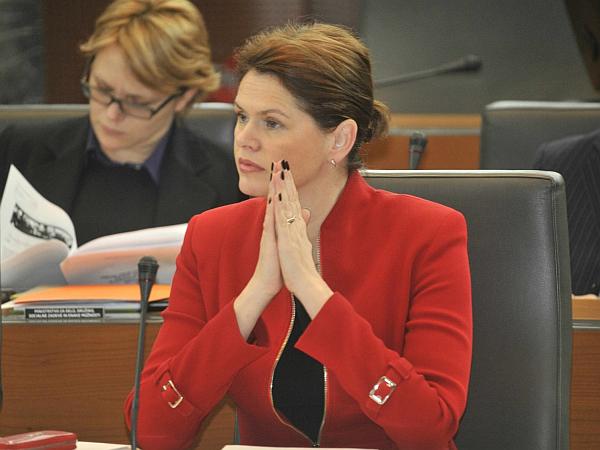"We are talking with the Bank of Slovenia also about that possibility, about what it would mean to get help for the banking sector," Alenka Bratusek told a news conference after a regular cabinet session. "But there is no need to speculate from that that Slovenia would actually need help."
Slovenian banks, mostly state-owned, are struggling with some 7.5 billion euros of bad loans, a figure widely used by local media as calculated from central bank figures and never disputed by the bank. That equals 21.5 percent of GDP and is at the heart of speculation that the country could ask for a bailout in the coming months.
Seeking to clarify Bratusek's remarks, her cabinet late on Thursday sent a statement to Reuters saying "the prime minister never said that aid for the banks is a possibility ... but that the government and the Bank of Slovenia are talking about what help for the banking sector alone means." "The next steps will be decided when we know the results of the stress tests," it said, stressing that the figure of 7.5 billion euros was speculation.
In August, the Bank of Slovenia ordered external stress tests for 10 local banks, which represent about 75 percent of the country's banking sector. The results are expected in November. "We will know about the size of bad loans when the stress tests are completed", Bratusek's cabinet said.
Central bank and other officials have been saying for weeks that it would be a tight call whether the small euro zone member would be able to recapitalise its struggling lenders on its own once it sees the results of stress tests. All euro zone members have the option of asking for financial aid from the European Stability Mechanism, established in 2012 to provide financial assistance to member states in difficulty.
Slovenia has until Oct 1 to present its reform programme to the European Commission, revealing steps that should reduce budget deficit to 3 percent in 2015 from 7.9 percent seen this year. On Monday Eurogroup head Jeroen Dijsselbloem will visit Ljubljana for talks on reforms.
Oglas



































































